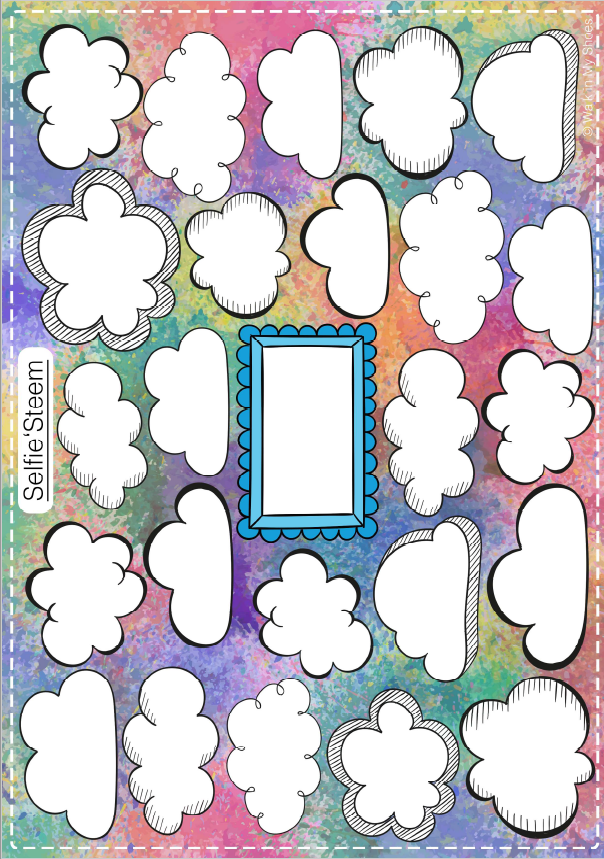
Occupational therapist Grace Tutty examines the meaning of self-care and the kinds of choices young people can make to look after their wellbeing.
Grace Tutty is an Occupational Therapist with St Patrick’s Mental Health Services. Here, Grace shares some key tips and takeaways about self-care and we point to some of our wellbeing resources which you may find helpful in your own self-care practices.
Making choices to nurture ourselves
It’s important to nurture ourselves in all areas of life – our heart, soul, strength and mind – and to know that what we do in one part affects all the other areas of life too.
Below are some of the key things to consider in our self-care. Make sure to watch the event recording, which you can also find below, for further tips on how to include and improve behaviours and practices in these areas.
Organisation
Organisation is the ability to keep track of and make good use of our time. Being organised makes us feel calm and able to take on challenges. Taking a few minutes to organise ourselves can move us from feeling stressed to feeling empowered.
Stress
Everyone has stress: we can’t avoid it. Stress can be good in driving us forward, but it can also overwhelm us.
There are warning signs that can arise slowly over time – for example, we may experience physical aches, sleep poorly, or feel more moody, sad or cranky than normal – but these can get worse if we ignore them. When we’re stressed, we can make decisions that are unhelpful; however, we can act thoughtfully around stress to make for a more relaxing life. For example, taking a break – whether to go for a run, to practice a breathing exercise, or even just to have a cup of tea – can be a healthy way to deal with stress. Keeping things in perspective and talking about them with others can help us to navigate major life challenges.
Relationships
Relationships are not typically included in self-care but we are built to connect and interact with others so they are important to it. Relationships can give us energy or drain us of the energy we need, so it’s vital that we take pause and think about how satisfied we are with the time we spend with others, how honest we can be in our conversations with them, and if we are good and trusted friends to them. A big part of our relationships is how we take responsibility for them and the effort we put into them, so practicing self-care can be about doing small things to improve a relationship, from listening well to sharing a meal with others.
Rest and play
We all function better and feel more vibrant when our ‘batteries’ are full; we need to find a way to keep our batteries charged. We need time for recreation, as well as finding time for quiet and restfulness; this makes us feel stronger, energised, and more positive across all areas of life. It’s important that we look for and engage in things that renew us, or that excite and inspire us, be that music, art, baking or being in nature – no one size fits all.
Emotions
Our emotions are a guide to understanding the world around us; if they’re uncomfortable, it signals that something’s not right and something might need to change. They themselves are neither good or bad, but how we handle them can be either beneficial or more harmful. It is good to think about emotions like a wave; we need to learn to move through and ride the wave, rather than ignoring and being overwhelmed by it.
Spirituality
Grounding and connecting ourselves is central to self-care; this gives us a strong root system to weather storms and challenges when them come along. Picking out the good things in life and being thankful for them is part of this, as well as thinking about what we give back to the world and doing something to centre ourselves.
Care for the body
There is a lot of emphasis on how our bodies look, rather than how important it is for our bodies to be healthy. Our bodies allow us to do so much, taking care of them and building a positive relationship with them is really important. This includes everything from making good choices about food and drink and keeping regular bedtimes to exercising and moving our bodies.
Being mindful of the details
Putting a little measure on your goals also helps them to be more successful as you know ahead that you can fit them into your week and measuring them gives you the evidence for what you’re doing.
You can find more tips and advice in the video below.
Continue to…
“Be intentional: the future is unpredictable”: WIMS Q&A with Stefanie Preissner


